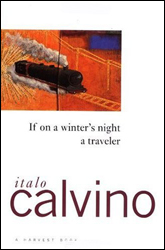 Book 48, That Summer in Paris (1963) – Morley Callaghan
Book 48, That Summer in Paris (1963) – Morley Callaghan
“It was the fabulous summer of 1929 when the literary capital of North America moved to La Rive Gauche-the Left Bank of the Seine River-in Paris. Ernest Hemingway was reading proofs of A Farewell to Arms, and a few blocks away F. Scott Fitzgerald was struggling with Tender Is the Night. As his first published book rose to fame in New York, Morley Callaghan arrived in Paris to share the felicities of literary life, not just with his two friends, Hemingway and Fitzgerald, but also with fellow writers James Joyce, Ford Madox Ford, and Robert McAlmon. Amidst these tangled relations, some friendships flourished while others failed. This tragic and unforgettable story comes to vivid life in Callaghan’s lucid, compassionate prose.”
Other useful links:
the Wikipedia entry for Morley Callaghan
My thoughts:
I enjoyed this immensely, my favourite of Callaghan’s so far. Callaghan is a great guide to the literary world of the twenties. He was obviously well-regarded by his slightly older contemporaries, including Hemingway and Sinclair Lewis and Ezra Pound and James Joyce. I love his enthusiasm as he meets up with his idols one by one. In between stories of these encounters, he talks about his day to day (or night to night) routine of walking around Paris and discussing literary and other things in the cafés over wine, punctuated by weekend boxing matches with Ernest.
From a coming-of-age, portrait of the artist as a young man in the first part of the book, we move to an older man’s reflection upon the sincere friendship of three men gone awry in the last act. The breakup of the friendship of the three men over something so small and inconsequential was sad and unnecessarily unfortunate. Or, perhaps, according to Morley’s analysis of their natures, unavoidable.
Great, inspirational passages about writing as an art, an interesting description of a renowned time and place with famous people entering and exiting the stage, and a meditation on the vicissitudes of friendship.


